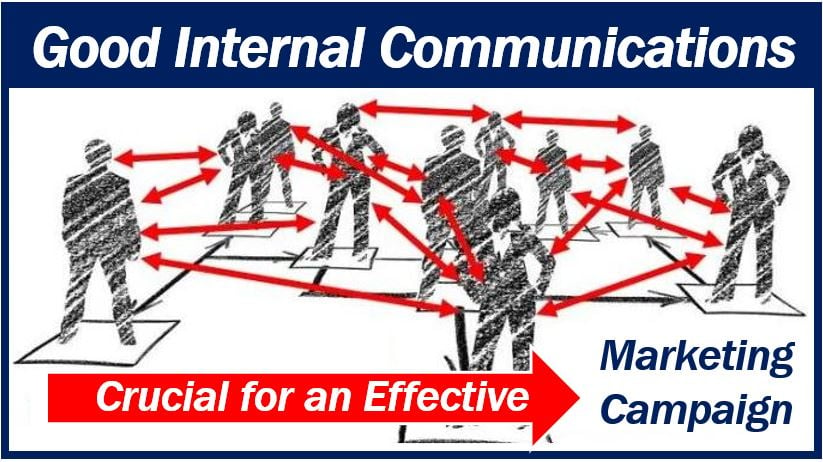What is a marketing campaign? Definition and examples
A marketing campaign is a comprehensive course of action to sell and promote something, i.e., either a product, service, or brand. In a marketing campaign, the team may have organized the promotion of goods through printed publications, radio, TV, billboards, banners, trade shows, conferences, online, and other kinds of media.
 Some campaigns occur before a product or service has been created. The marketing team may carry out market research which may include interviews with certain types of consumers or companies, and a study of similar goods that are already on the market. The aim here is to determine whether there is a market for the planned product, and if so, what the best price would be.
Some campaigns occur before a product or service has been created. The marketing team may carry out market research which may include interviews with certain types of consumers or companies, and a study of similar goods that are already on the market. The aim here is to determine whether there is a market for the planned product, and if so, what the best price would be.
Investopedia, which focuses on business and finance education, says the following about the term:
“Marketing campaigns promote products through different types of media, such as television, radio, print, and online platforms. Campaigns are not solely reliant on advertising and can include demonstrations, video conferencing, and other interactive techniques.”
Businesses with sales of $25 million or less spend on average 13.9% of their income on marketing campaigns. Much of that money today goes on digital marketing, i.e., online or Internet marketing.
Marketing campaign – part of marketing
Marketing includes analyzing the market, determining what consumers like and want, how much they are willing to pay, whether there is anything similar already on the market, producing that product, and selling it.
Companies, employees, consultants, and academics may have different definitions of the word ‘marketing.’ For some, it is all about analyzing the market and their company’s or product’s position in it, while for others it has more to do with promotion and sales.
In a Market Business News article titled “What is Marketing?” we wrote:
“Basically, it is a management process through which products and services move from concept to the customer.”
“It includes identification of a product, determining demand, deciding on its price, and selecting distribution channels. It also includes developing and implementing a promotional strategy.”
In most cases, the marketing campaign occurs after the product has been created, i.e., when a company wants to encourage people to buy it.
A well thought out plan
A marketing campaign is not the result of a sudden burst of inspiration – it is not a ‘eureka moment.’ It is carefully thought out, researched, and requires a great deal of planning.
Before starting or creating a campaign, you need to fully understand your company’s or product’s position in the marketplace.
The aim of a marketing campaign
It is important to know why you plan to run a campaign. What do you want to achieve with it? If defining what you want is difficult, go for a broad idea. Here is a list of some goals. Which one matches what you want to achieve (there may be more than one or some overlap)?
- Boost revenue.
- Increase user engagement.
- Promote or launch a new product or service.
- Improve people’s awareness of your brand.
- Find out what people want, i.e., get customer or consumer feedback.
- Lessen the impact of bad news.
- Get more leads.
Masterful Marketing, which helps companies navigate the complex maze of online marketing, makes the following comment regarding what you want your campaign to achieve:
“Marketing activities can have different types of outcomes: leads, visitors, visibility or engagement. Each marketing campaign needs to focus on one primary purpose. Based on that purpose, you need to set specific goals and metrics or key performance indicators.”
“For example, if your campaign is focusing on lead generation, how many leads do you want to generate and how will you measure success?”
Internal communications
No matter how talented and experienced your people are, your marketing campaign will fall apart if those involved in it are not collaborating continuously and effectively. In fact, an inexperienced team with excellent internal communications is more likely to make a campaign work than a team of seasoned professionals who failed to liaise properly.

The only way to be sure that all participants are on the same page is by communicating. Let’s imagine that one person in your PPC (pay-per-click) advertising team insists that your budget is set in stone, while somebody else thinks that it is flexible, as long as there are good results. Without proper communication, you will have team members working in different directions, which is a recipe for disaster.
In a Market Business News article about marketing campaigns and internal communications, I wrote the following:
“An internal communications director or team leader should make themselves responsible for setting these goals and priorities, and making sure they’re communicated effectively. Sometimes, that simply means listing them on a shared whiteboard. Other times, it means talking to individual members to make sure they understand the focus of your campaign.”
Timing
Having a good plan before launching your marketing campaign is great. However, you cannot do whatever you like without considering the needs and lifestyles of your customer base or target consumers.
Before deciding on your campaign’s starting date, consider your timing with those of the people you are targeting. If your target market consists of adults in their 30s and 40s, don’t launch just before the school summer vacations. Most parents with small or teenage children go away on vacation when schools break up for the summer.
The timing of your marketing campaign is crucial. Get it right and your chances of success are great. Get it wrong, and you will have wasted a lot of money, time, and effort.
_______________________________________________________
Interesting related article: “What is a Marketing Strategy?”

